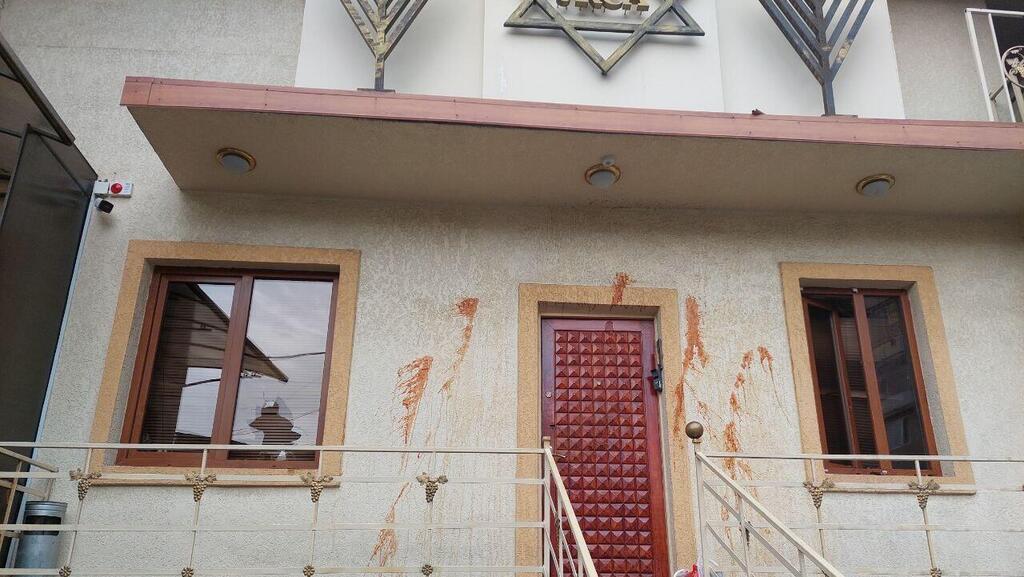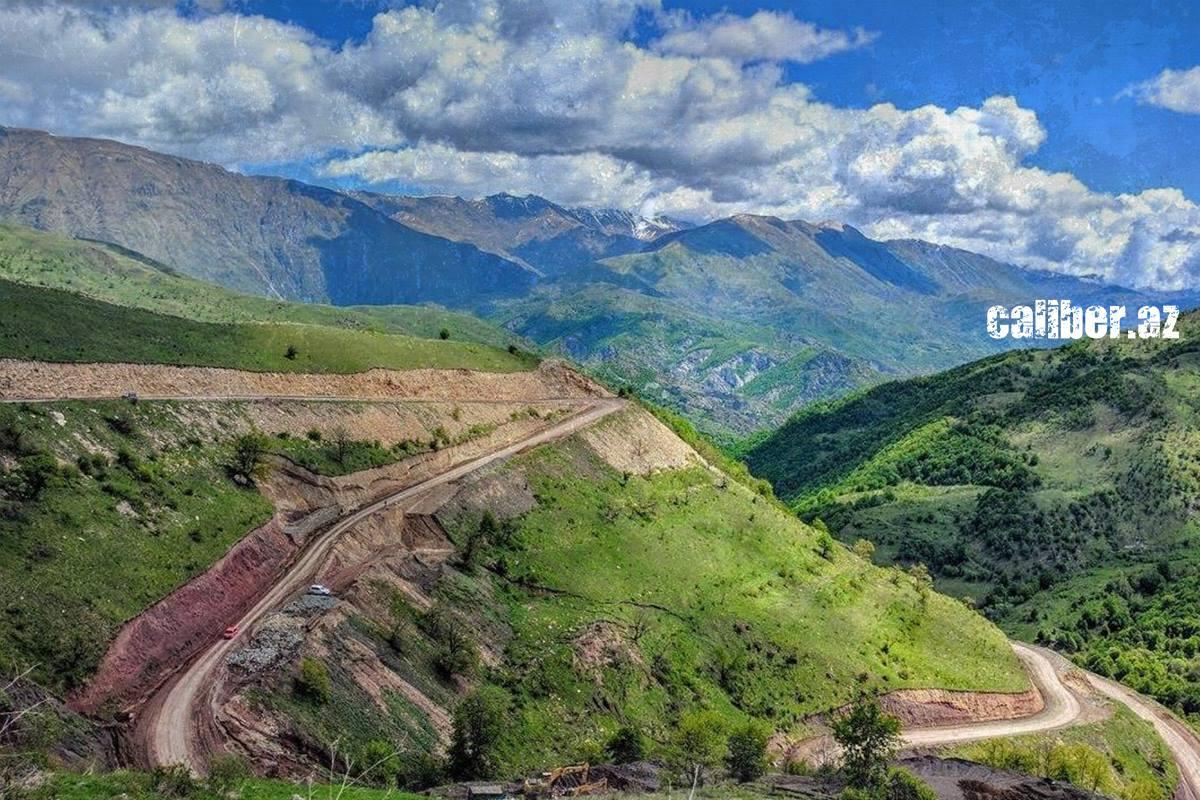Armenia-Israel: growing contradictions Expert’s opinion
About 30 masked armed men attacked the territory of the Cows’ Garden in the Armenian quarter of Jerusalem on December 28, 2023. They reportedly attacked priests and students of the Armenian Theological Academy who were there during the attack, and the latter were severely injured.
“This is a criminal response that we received in retaliation for appealing to the Jerusalem District Court regarding the Cows’ Garden. This way Australian and Israeli businessmen Danny Rothman and George Warwar react to court proceedings. The threat to the existence of the Armenian Patriarchate is a physical reality,” the Armenian Patriarchate of Jerusalem said.
“We call on the Israeli government and police to investigate the case related to Danny Rothman (Rubinstein) and George Warwar (Hadad) for organizing ongoing criminal attacks on the Armenian Patriarchate and the Armenian community. There are endless attacks. Israel is a state governed by the rule of law, and such criminal behavior cannot be tolerated,” the Armenian Patriarchate of Jerusalem added.
Other sources report that the Jerusalem Armenian Patriarchate previously announced the cancellation of the agreement dated July 8, 2021, according to which a plot in the southwestern Armenian quarter in Jerusalem (in the Old City) was leased to businessman Daniel Rubinstein for 99 years.
However, the latter did not agree with this decision. According to the Armenian sources, representatives of the company, including Rubinstein himself, together with a group of people tried to oust the Armenians from the site and illegally construct there something. Unfortunately, the opinion of the representatives of this businessman remains unknown.
Proceeding from the information, this is not a political act, this is not an attack by radical nationalists and xenophobes. This is “a dispute between economic entities”. Russia used such an expression in the 1990s.
The Patriarchate and the Israeli businessman disagreed about who owned the land, someone lost the nerve. As a result, the incident occurred.
Land in the Old City of Jerusalem is very expensive, so the stakes were high. Nothing personal, it is just business.
However, such events are very dangerous incidents, regardless of the original point that caused them. Extremists attacked the Mordechai Navi Synagogue and community cultural center in Yerevan in October. The Armenian Secret Army for the Liberation of Armenia (ASALA), created in the 1970s and which was silent for a long time after the terrorist attacks of the 1980s, took responsibility for the incident. Nationalists poured paint on the walls of the synagogue. They also threw a bottle of Molotov cocktail into the building.

Some representatives of the Jewish communities spoke about the threat of further attacks and the need for Jews to leave Armenia.
There has been tension between Armenia and Israel for a long time. It has several dimensions, the main one is geopolitics. Israel is a close ally of Azerbaijan.
Baku ranks second in Israeli arms exports, after India. Azerbaijan obtains high-precision weapons - "Harop" kamikaze drones, various missile systems, "Spike" anti-tank systems, etc. produced by the Israeli military-industrial complex.
These supplies worth billions of dollars played a great role in Azerbaijan's victory during the 44-day second Karabakh war. For its part, Israel receives oil from Baku, it is the second biggest importer of Azerbaijani oil.
Tehran’s side says that Azerbaijan has become an intelligence base for Israel and a place for conducting various secret operations from the Azerbaijani territory directed against Iranian interests. Baku categorically denies this.
Iran and Israel are pursuing, in a certain sense, similar policies, trying to get closer to each other’s borders. Thus, Iran has surrounded Israel with its allies, who control Lebanon, Syria, and Iraq.
For its part, the Israeli leadership seeks cooperation on security issues with the Gulf countries, namely, the UAE, Saudi Arabia, and Bahrain.
The supply of Israeli weapons to Azerbaijan and the country's intensifying ties with Israel irritate Armenia. For its part, Armenia, which finds itself in a very difficult geopolitical situation, is trying to interact with Israel’s main enemy - Iran. Economic cooperation between countries is expanding, acquiring strategic importance.
This is a chance for Armenia to diversify its economy by reducing its huge dependence on Russia, which controls Armenia's energy system. Moreover, this is an opportunity to join Iranian financial flows, which contribute to economic recovery. Iran's ties with Armenia allow it to help some companies avoid heavy US sanctions - it can always use Armenian intermediary companies.
Frankly speaking, by assisting Iran in this issue, Armenia risks falling under the US sanctions, but thanks, firstly, to Armenian lobbyists in the US and, secondly, to the Biden soft administration towards Iranian violation of sanctions, these actions have not yet led to the US attacks.

Another important point of cooperation between Yerevan and Tehran is the Zangezur corridor. Azerbaijan and Türkiye are directly interested in it, as it should connect mainland Azerbaijan with Nakhchivan, as well as with Türkiye, creating a unified transport system. This corridor is also necessary for Russia, its economic ties with Türkiye (amid US anti-Russian sanctions) are of great importance for it and are constantly developing. Armenia and Iran groundlessly assume that this corridor will cut them off from each other.
Moreover, from Tehran’s point of view, the Zangezur corridor “will change the geopolitical balance in the region”, as currently, it is possible to go from Baku to Nakhchivan through Iranian territory.
Tehran said that Azerbaijan’s attempt to build the Zangezur corridor is a “red line” for it and that if it is crossed, it will be ready to use force. For Yerevan, Iran is essentially the only ally in connection with the corridor.
The next issue dividing Armenia and Israel is the year 1915. Israeli Prime Minister Benjamin Netanyahu personally blocked the discussion of a bill in the Israeli Parliament (Knesset) recognizing the events of 1915 in the Ottoman Empire as the “Armenian genocide”. There are different opinions on this issue in Israel.
Most of the country's experts point out that such recognition will not happen, insisting on the demand put forward by Türkiye - first of all, to open the archives of Armenia to jointly study the issue, and only then, proceeding from the available data, to come to certain conclusions.
Moreover, Israelis are irritated by the installation of a monument to Garegin Nzhdeh, an Armenian Third Reich politician, in Armenia. The main thing here is geostrategic considerations. Israel has no desire to quarrel with Azerbaijan and its main ally - Türkiye. Even despite the complications with the latter, Israel does not want further aggravation of relations with Ankara.
All these controversial issues raised by politicians and the ruling classes of Israel and Armenia are accumulated, discussed, broadcast by the media and sometimes become xenophobic. All this can lead to bad consequences, as it was during the attack on the synagogue in Yerevan or the clashes in Jerusalem (although in the latter case, there may have been no nationalist motive).








